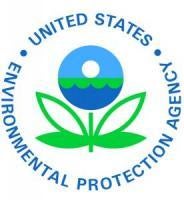WASHINGTON – The U.S. Environmental Protection Agency (EPA) and the U.S. Justice Department (DOJ) today announced that Mahard Egg Farm, Inc., a Texas corporation, will pay a $1.9 million penalty to resolve claims that the company violated the Clean Water Act (CWA) at its egg production facilities in Texas and Oklahoma. The civil penalty is the largest amount to be paid in a federal enforcement action involving a concentrated animal feeding operation (CAFO). The company will also spend approximately $3.5 million on remedial measures to ensure compliance with the law and protect the environment and people’s health.
“By working with DOJ and our state partners in Texas and Oklahoma, we have reached a significant settlement that reflects the seriousness of Mahard’s violations,” said Cynthia Giles, assistant administrator for EPA’s Office of Enforcement and Compliance Assurance. “Large animal feeding operations that fail to comply with our nation’s environmental laws threaten public health and the environment and put smaller farming operations at a disadvantage.”
“This agreement is the result of extensive cooperation between the states of Texas and Oklahoma and the federal government to address multiple violations of the Clean Water Act at Mahard facilities,” said Ignacia S. Moreno, assistant attorney general for the Environment and Natural Resources Division at the Department of Justice. “Ensuring the lawful handling of CAFO wastes will mean cleaner steams and waterways in Texas and Oklahoma, which is important for aquatic habitats, safe drinking water, and public recreation.”
The CWA complaint, filed jointly with the settlement by the United States and the states of Texas and Oklahoma, alleges that Mahard operated a facility without a permit and discharged pollutants into area waterways. Mahard also allegedly discharged pollutants or otherwise failed to comply with the terms of its permits at six other facilities, including its newest facility near Vernon, Texas, where it also failed to comply with the Texas Construction Storm Water Permit and to ensure safe drinking water for its employees. The states of Texas and Oklahoma also alleged violations of state laws.
Most egg production facilities generate various wastes, including wet or dry manure from chicken houses, wastewater from the egg-washing process, and compost from chicken carcasses. If done properly, these wastes may be sold or contained on-site in manure storage lagoons, prior to being applied to nearby fields. However, the joint complaint alleges that, as a result of Mahard’s historic practice of over-applying waste to its fields, the soils at its facilities are saturated with nutrients (nitrogen and phosphorus) and, during and after rainfall, these nutrients are discharged into area streams and waterways. In addition, at several facilities, Mahard abandoned inactive and improperly designed manure lagoons rather than closing them as required by law.
As part of this settlement, Mahard has committed to comprehensive, system-wide changes in order to bring each of its seven CAFO facilities into compliance with applicable state and federal laws, permits, and regulations and to restore the lands to prevent future discharges to area waterways. The settlement mandates the performance of specific requirements, such as lagoon closures, groundwater monitoring, and the construction and maintenance of buffer strips along area waterways within the facility boundaries. It also requires on-going land restoration and management measures, such as restrictions on land-application of manure and livestock grazing.
Preventing animal waste from contaminating surface and ground waters of the United States is one of EPA’s National Enforcement Initiatives for 2011-2013. The initiative continues EPA’s focus on large and medium sized CAFOs that are discharging pollution without or in violation of a permit.
The settlement, lodged in the U.S. District Court for the Northern District of Texas, is subject to a 30-day public comment period and approval by the federal court.
More information on the settlement: http://www.epa.gov/compliance/resources/cases/civil/cwa/mahardegg.html



 />i
/>i
